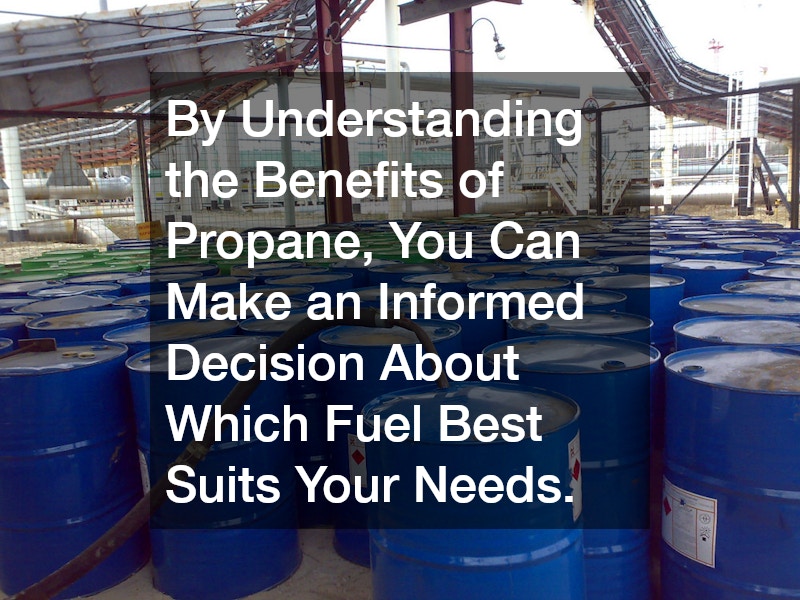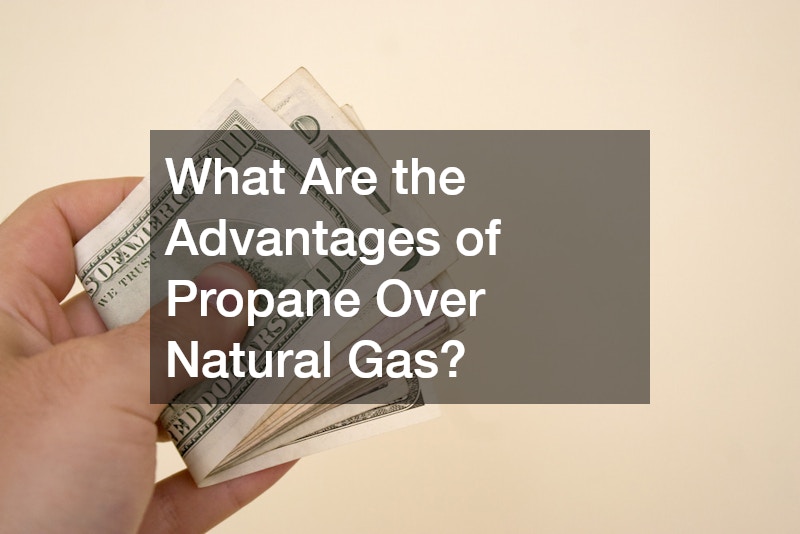
When it comes to choosing a fuel source for heating, cooking, or powering appliances, homeowners and businesses often compare propane and natural gas. While both fuels offer efficiency and versatility, propane stands out in several ways, making it a popular choice for many applications. In this article, we’ll explore the advantages of propane over natural gas, highlighting why it might be the better option for your energy needs.
1. Higher Energy Efficiency
One of the most significant advantages of propane is its superior energy efficiency. Propane has a higher energy content per cubic foot compared to natural gas. Specifically, propane delivers approximately 2,500 BTUs (British Thermal Units) per cubic foot, while natural gas provides around 1,000 BTUs per cubic foot. This means propane can generate more heat and energy per unit, making it a cost-effective option for heating systems, water heaters, and appliances. Because propane burns hotter and more efficiently, it often results in lower energy consumption for the same tasks. This makes it especially appealing for homeowners looking to reduce their utility bills while maintaining comfort and convenience.
2. Portability and Storage
Propane’s portability is another key advantage over natural gas. Propane is stored in pressurized tanks, allowing it to be transported and used in areas where natural gas pipelines are unavailable. This makes it an excellent choice for rural homes, cabins, and mobile homes. In contrast, natural gas requires a direct connection to a utility company’s pipeline infrastructure. This dependency on pipelines limits its accessibility, particularly in remote or off-grid areas. Propane’s ability to be stored on-site gives users more flexibility and independence in managing their fuel supply.
3. Versatility in Applications
Propane is known for its versatility and can be used for a wide range of applications. In residential settings, propane powers heating systems, stoves, ovens, water heaters, and even backup generators. For outdoor use, it fuels grills, fire pits, patio heaters, and pool heaters. Commercially, propane is commonly used in agriculture for crop drying, powering machinery, and heating greenhouses. It’s also essential in industrial settings for forklifts, welding, and other heavy-duty equipment. The broad utility of propane ensures that it can meet diverse energy needs efficiently, regardless of the setting.
4. Lower Carbon Footprint
For environmentally conscious consumers, propane is a cleaner-burning fuel compared to natural gas. Propane combustion produces fewer greenhouse gas emissions and pollutants such as carbon dioxide and methane. It is considered a low-carbon energy source and is listed as a clean fuel under the Clean Air Act. Unlike natural gas, which consists primarily of methane, propane is non-toxic and does not contribute to soil or water contamination if spilled. This makes it a safer and more environmentally friendly choice for energy needs.
5. Reliable During Emergencies
Propane’s storage capability ensures reliability during emergencies, such as natural disasters or power outages. Unlike natural gas, which relies on continuous delivery through pipelines, propane can be stored in large tanks on-site. This means you can maintain power and heat even if infrastructure is compromised. Backup generators powered by propane are particularly beneficial during storms or blackouts. They provide a dependable source of energy to keep essential appliances and systems running when the electrical grid is down.
6. Cost Stability
Propane often offers more predictable pricing compared to natural gas. While natural gas prices can fluctuate due to changes in demand, production, or geopolitical factors, propane prices tend to be more stable. Additionally, propane users can purchase and store fuel during periods of lower prices, providing further cost management benefits. For individuals or businesses looking to budget their energy expenses, propane’s price stability and storage flexibility offer peace of mind.
7. Long-Term Appliance Longevity
Propane-powered appliances tend to have a longer lifespan compared to those running on natural gas. The clean-burning properties of propane result in less soot and residue buildup, reducing wear and tear on components. This can translate to lower maintenance costs and fewer replacements over time, making propane a more economical choice in the long run.
8. Better Performance in Cold Weather
Propane performs exceptionally well in cold weather, making it ideal for regions with harsh winters. While natural gas pipelines can experience pressure drops in extreme cold, propane remains unaffected because it is stored in tanks. This ensures consistent performance for heating and other applications, even in sub-zero temperatures.
Propane offers numerous advantages over natural gas, including higher energy efficiency, portability, versatility, and environmental benefits. Its reliability during emergencies, cost stability, and suitability for cold climates further solidify its value as an energy source. Whether you’re looking to power a home, business, or industrial operation, propane provides a clean, efficient, and dependable solution. By understanding the benefits of propane, you can make an informed decision about which fuel best suits your needs. Whether for residential or commercial use, propane stands out as a versatile and practical energy source that delivers exceptional performance and peace of mind.
.




